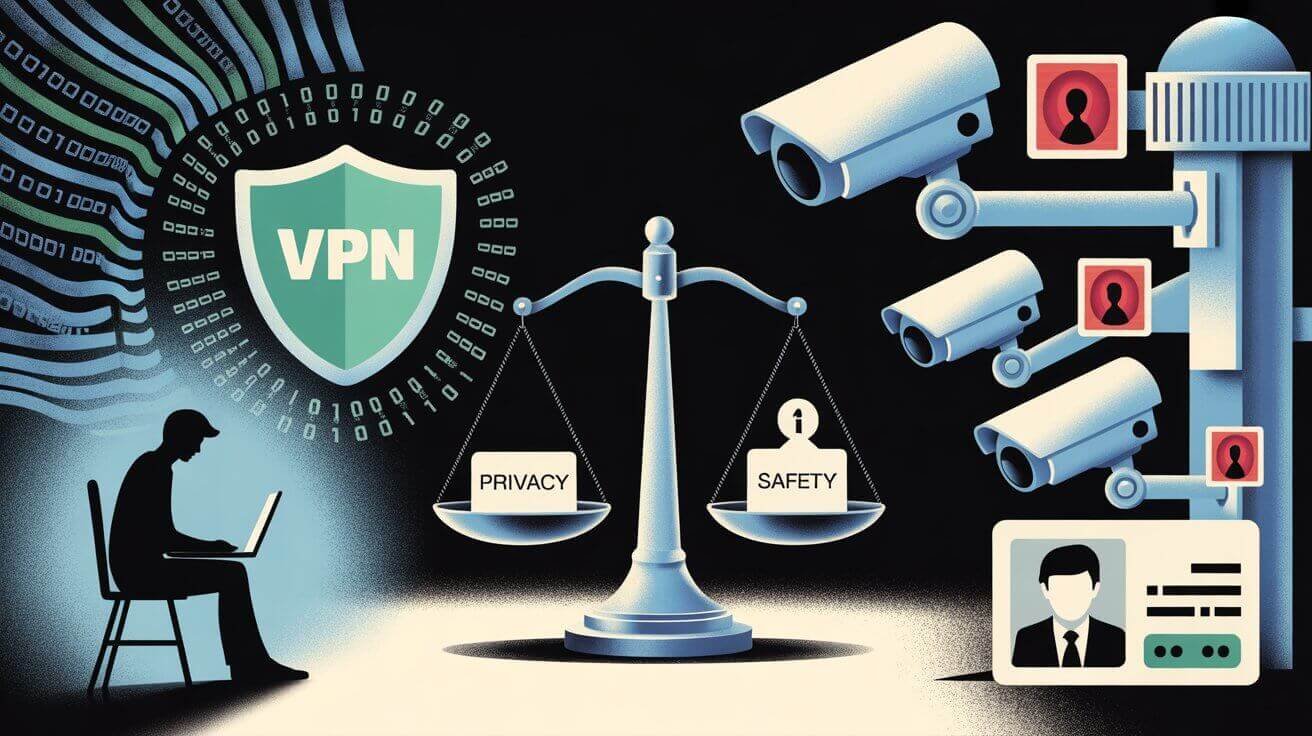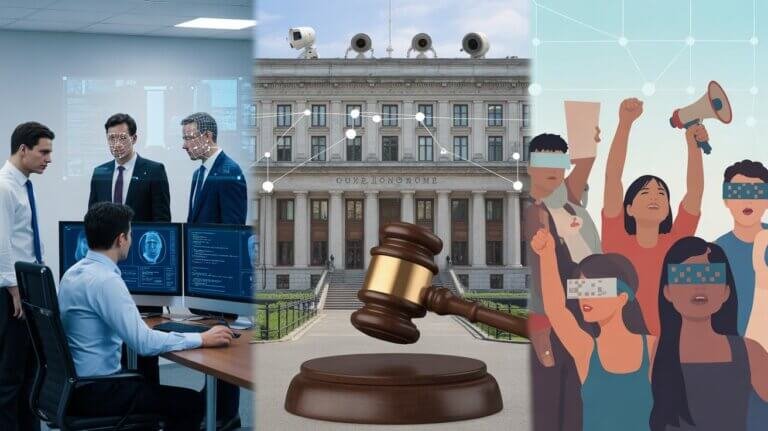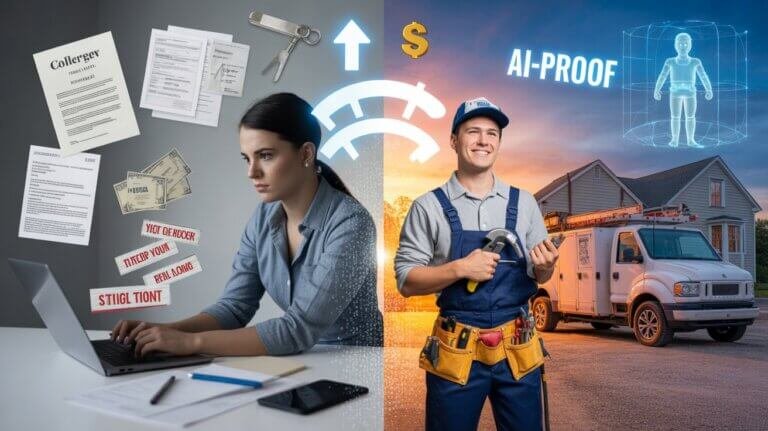Age verification laws are backfiring spectacularly. Instead of protecting kids, they’re pushing millions toward VPNs and driving traffic to unregulated corners of the internet. Meanwhile, these laws create massive privacy risks while doing little to actually solve the problem they claim to address.
Introduction
Picture this: You’re an adult trying to access legitimate content online, but suddenly you’re asked to upload your driver’s license and take a selfie. Welcome to the new reality of age verification laws that have been sweeping across the globe.
From Florida to the UK, governments are implementing age verification laws designed to protect children from adult content. However, these well-intentioned regulations are creating unintended consequences that Reddit users have been discussing extensively. The most notable result? A massive surge in VPN usage as people seek ways to maintain their privacy and access content without submitting sensitive personal information.
The statistics are staggering. VPN usage in Florida spiked by 1,566% within minutes when age verification laws took effect. Similarly, the UK saw a 1,400% increase in VPN sign-ups when their Online Safety Act came into force in July 2025.
But here’s the real question: Are these laws actually making the internet safer, or are they creating bigger problems while driving users toward potentially dangerous alternatives?
The Current State of Age Verification Laws
United States: A Patchwork of Restrictions
Currently, 18 US states have implemented age verification laws requiring users to prove they’re over 18 before accessing adult content. It started in Louisiana in 2022 and quickly spread across the American South like wildfire.
The response from major platforms has been swift and dramatic. Rather than comply with complex verification requirements, Pornhub and other major sites have simply blocked entire states. Florida, Texas, Tennessee, and 15 other states now find themselves digitally cut off from some of the internet’s most popular adult sites.
But here’s where it gets complicated: These laws create a legal nightmare. Some states prohibit companies from treating VPN traffic differently, while others require platforms to detect and block VPN users. Companies are literally being forced to choose which laws to violate.
United Kingdom: The Strictest Approach Yet
The UK took things even further with their Online Safety Act, which went into effect on July 25, 2025. Unlike the US state laws that primarily target pornographic websites, the UK law applies to social media platforms, dating apps, and any site hosting “explicit material”.
The verification methods are invasive: uploading government-issued ID, taking selfies, credit card verification, or facial age estimation. Reddit now requires UK users to submit photos of their IDs through a third-party company called Persona just to access NSFW content.
Why VPNs Have Become the Go-To Solution
The Privacy Dilemma
Let’s be honest about why people are flocking to VPNs. Nobody wants to hand over their driver’s license to access legal content online. As cybersecurity expert Yegor Sak from Windscribe VPN put it, requiring people to submit IDs or biometric data is “absurd and dangerous” because it creates centralized databases full of sensitive information that inevitably get breached.
How VPNs Bypass Age Verification
The process is straightforward:
- Install a reputable VPN service (like NordVPN or ExpressVPN)
- Connect to a server in a country without age verification laws (Germany, Netherlands, etc.)
- Access content normally without verification prompts
When websites check your IP address to determine your location, the VPN makes it appear you’re browsing from somewhere else entirely. Reddit users have confirmed this works effectively, with one noting that “anyone with the most minimal of computing knowledge” can bypass these restrictions.
The Numbers Don’t Lie
The surge in VPN usage tells the real story:
- Florida: 1,566% spike in VPN usage when laws took effect
- UK: 1,400% increase in VPN sign-ups post-Online Safety Act
- Google Trends: VPN searches in affected states nearly doubled within weeks
The Dark Side: Safety Risks Nobody’s Talking About
VPNs Aren’t Magic Solutions
Here’s what the VPN companies won’t tell you upfront: VPNs are not foolproof, according to experts at the Electronic Frontier Foundation. Your IP address isn’t the only way sites track your location. They also use GPS tracking, web cookies, mobile ad IDs, tracking pixels, and device fingerprinting.
Moreover, many users are gravitating toward free or unreliable VPN services, which often lack robust security measures. Past incidents have shown that VPNs claiming to log no customer data have leaked sensitive information, including email addresses, passwords, and geolocation details.
The Dark Web Connection
The irony is stark: Laws designed to protect children are actually pushing people toward less safe parts of the internet. As Pornhub noted in their statement, when they blocked access to Louisiana, traffic dropped 80% but people didn’t stop looking for content. Instead, they “migrated to darker corners of the internet that don’t ask users to verify age, that don’t follow the law, that don’t take user safety seriously.”
This includes the dark web, where users face various threats including malware, viruses, government monitoring, and scams. VPNs themselves create new attack vectors that cybercriminals can exploit, and they don’t protect against social engineering attacks or malware.
Practical Solutions for Staying Safe Online
Choosing the Right VPN
If you decide to use a VPN, don’t just grab the first free option. Here’s what to look for:
Essential Features:
- Strong encryption protocols (AES-256 is the gold standard)
- Strict no-logs policy (verified by independent audits)
- Kill switch mechanism (cuts internet if VPN disconnects)
- DNS leak protection (prevents your real location from being exposed)
Recommended Providers:
- NordVPN: Offers double encryption and specialty servers
- ExpressVPN: Known for fast speeds and reliable connections
- Surfshark: Unlimited device connections with strong security
Beyond VPNs: Complete Privacy Strategy
VPNs should be just one part of your online safety toolkit:
Browser Security:
- Use privacy-focused browsers like Firefox or Brave
- Enable tracking protection and disable JavaScript when needed
- Regularly clear cookies and browsing data
Device Protection:
- Keep your operating system and apps updated
- Use reputable antivirus software
- Enable two-factor authentication wherever possible
Alternative Approaches
Rather than relying solely on VPNs, consider these strategies:
Parental Controls at the Source:
- Router-level filtering for families
- Device-specific restrictions
- Open communication about online safety
Digital Literacy Education:
- Teaching critical thinking about online content
- Understanding privacy rights and data protection
- Learning to identify scams and malicious sites
The Future: What’s Coming Next
Enforcement Evolution
Don’t expect these laws to remain static. Governments are getting smarter about VPN detection. Advanced systems are being developed to identify and block VPN traffic, making the workarounds less effective over time.
The US Supreme Court recently heard arguments on Texas’s age-verification law and seemed “more receptive than in the past” to government efforts to apply age restrictions online. If these laws are upheld, expect similar legislation to spread rapidly across other states.
Global Expansion
This isn’t stopping with the US and UK. France has implemented similar requirements, Australia is planning social media restrictions for under-16s by December 2025, and Canada has pending legislation that would require age verification across all online platforms.
Conclusion
Age verification laws represent a fundamental clash between child protection, privacy rights, and the nature of the internet itself. While the intentions are admirable, the execution is creating more problems than solutions.
The massive surge in VPN usage isn’t just about accessing blocked content – it’s a symptom of deeper issues with these laws. When millions of law-abiding adults are forced to choose between surrendering their privacy or breaking restrictions, something is fundamentally wrong with the approach.
The real losers in this scenario might be the children these laws claim to protect. Instead of creating safer online spaces, we’re pushing users toward unregulated platforms and teaching an entire generation that circumventing digital restrictions is normal and necessary.
Moving forward, we need smarter solutions that don’t treat every internet user as a potential criminal or force people to choose between privacy and access to legal content. That might mean better parental controls, improved digital literacy education, or age verification systems that don’t require surrendering sensitive personal data.
Until then, the VPN boom will continue, and the internet will become increasingly fragmented by jurisdiction – exactly the opposite of what the early pioneers of the web envisioned.








